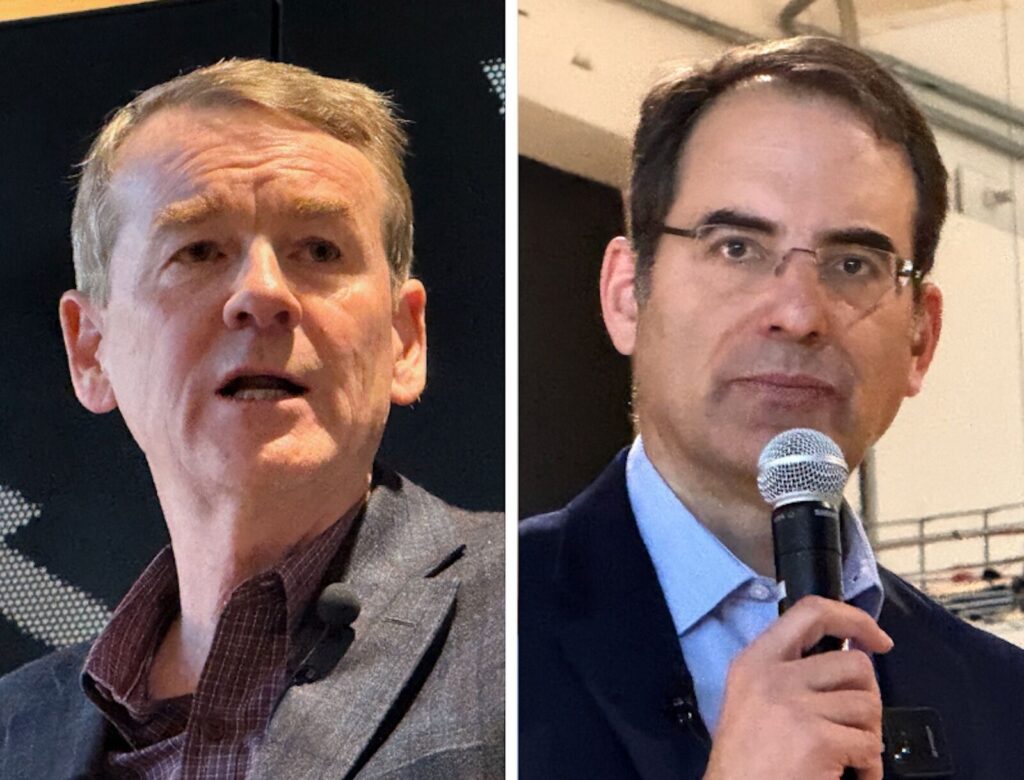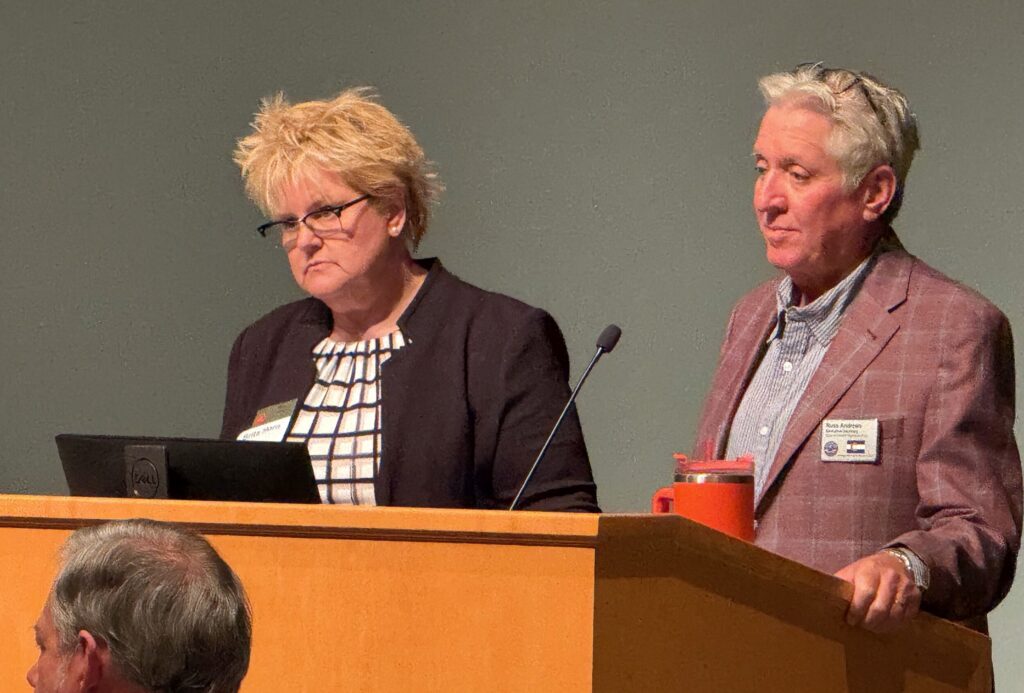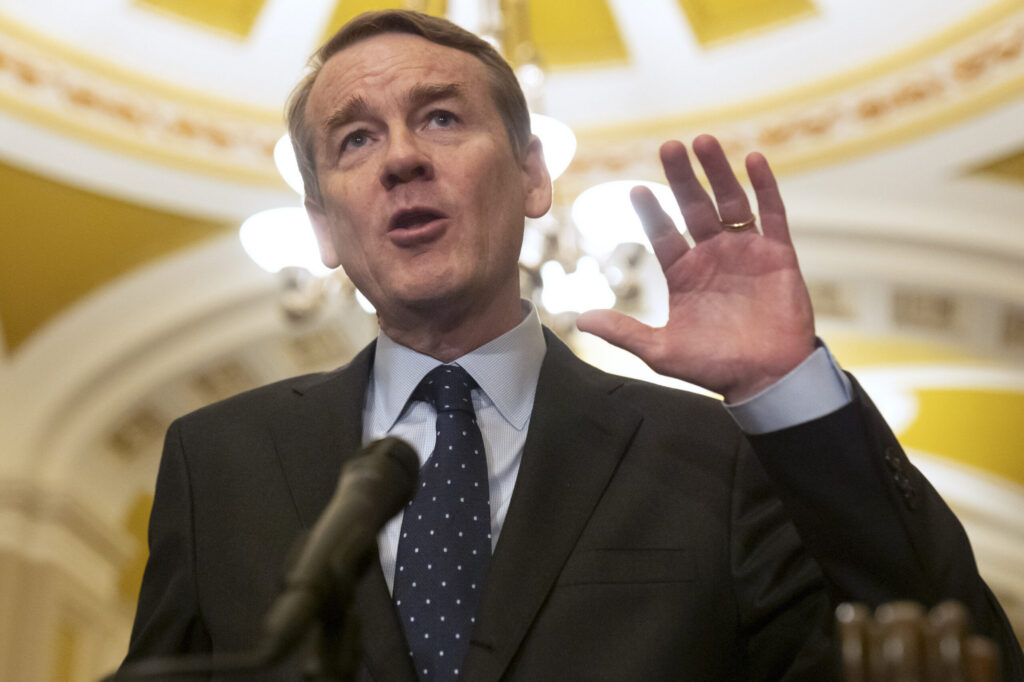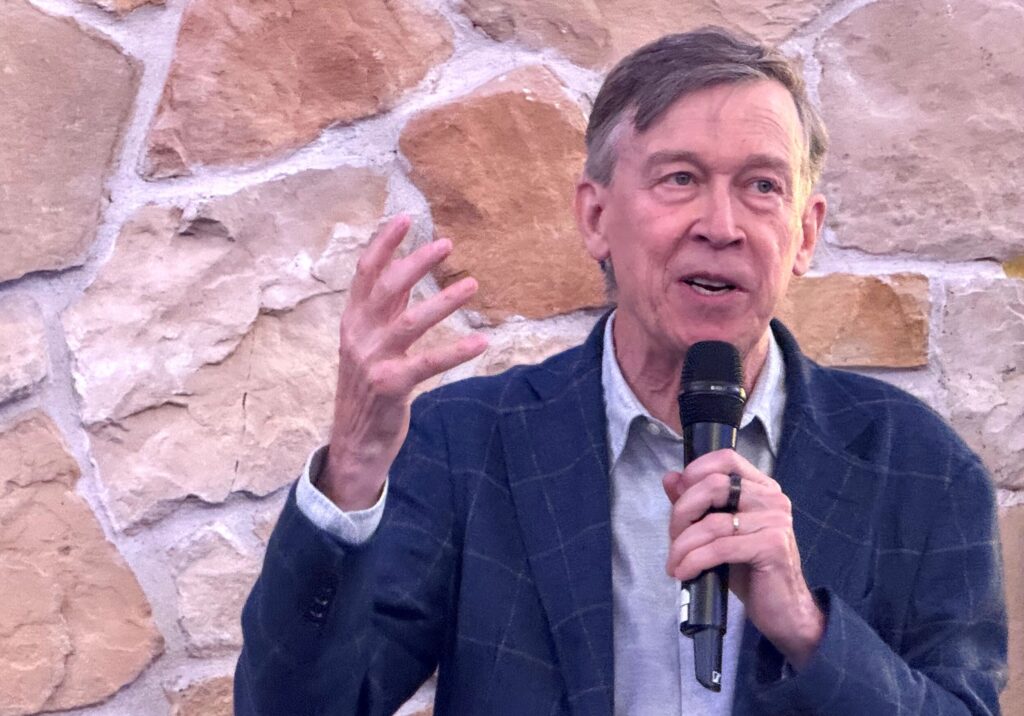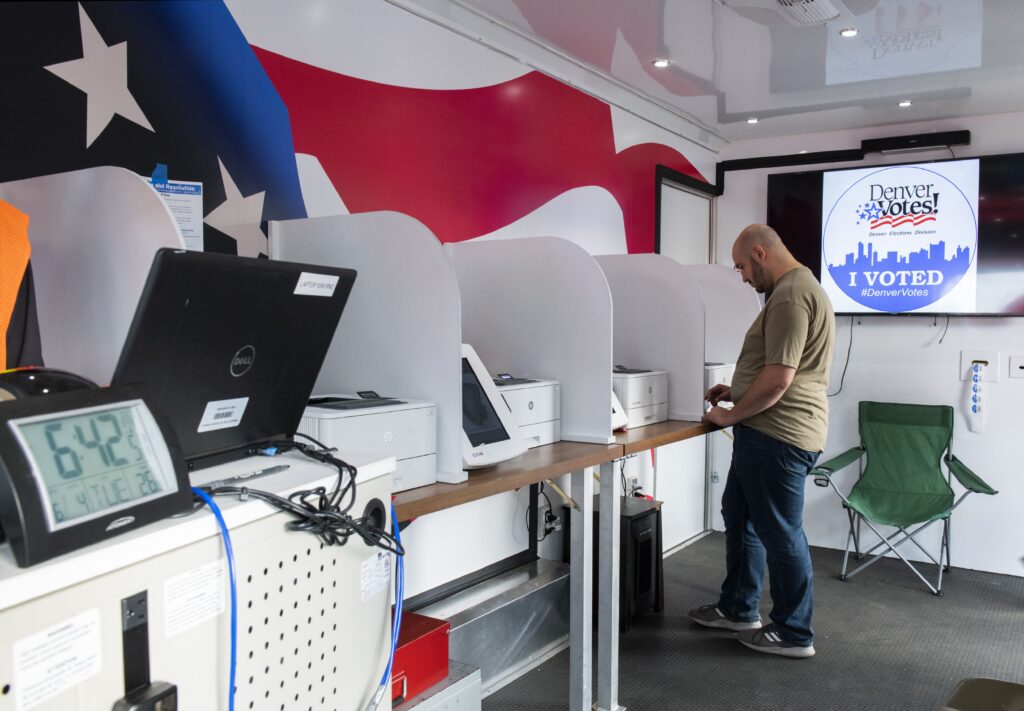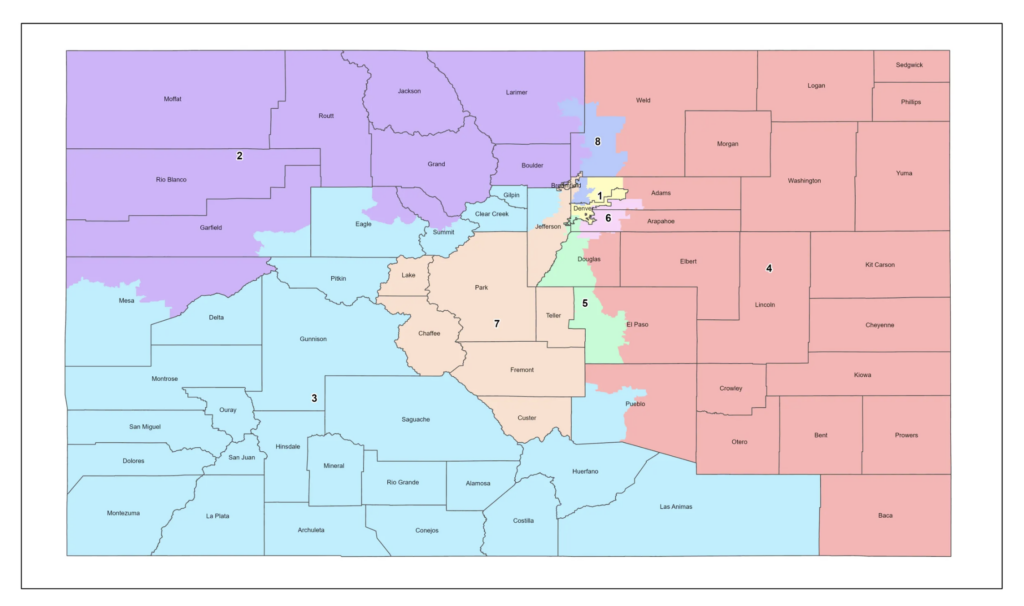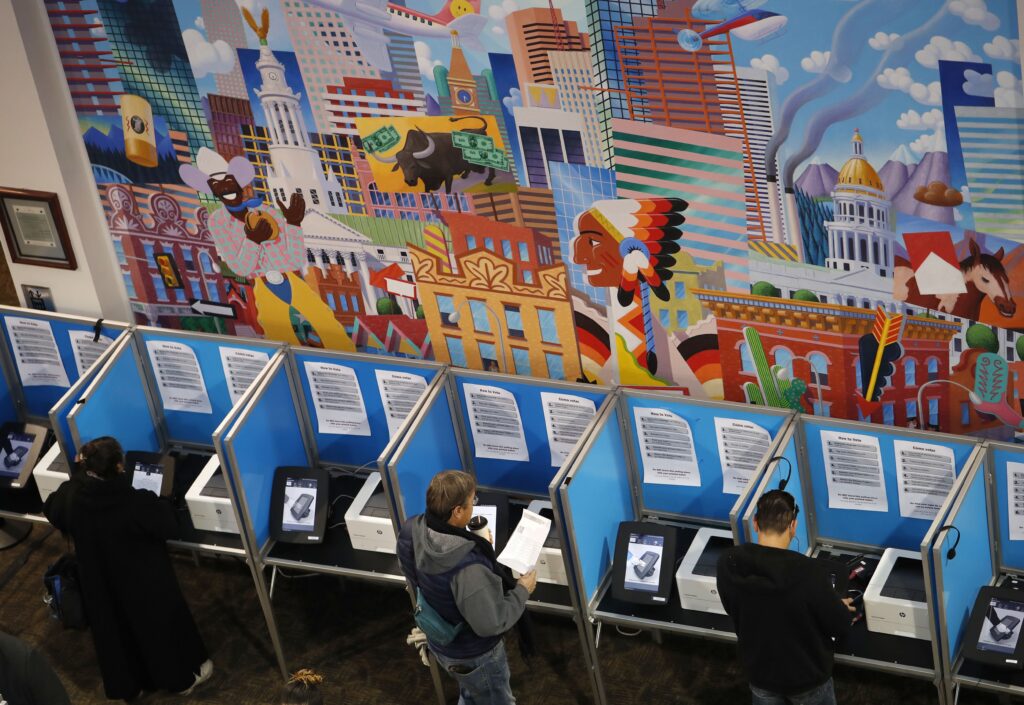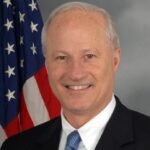Get to know Aurora’s Ward VI city council candidates | DENVER VOTERS GUIDE
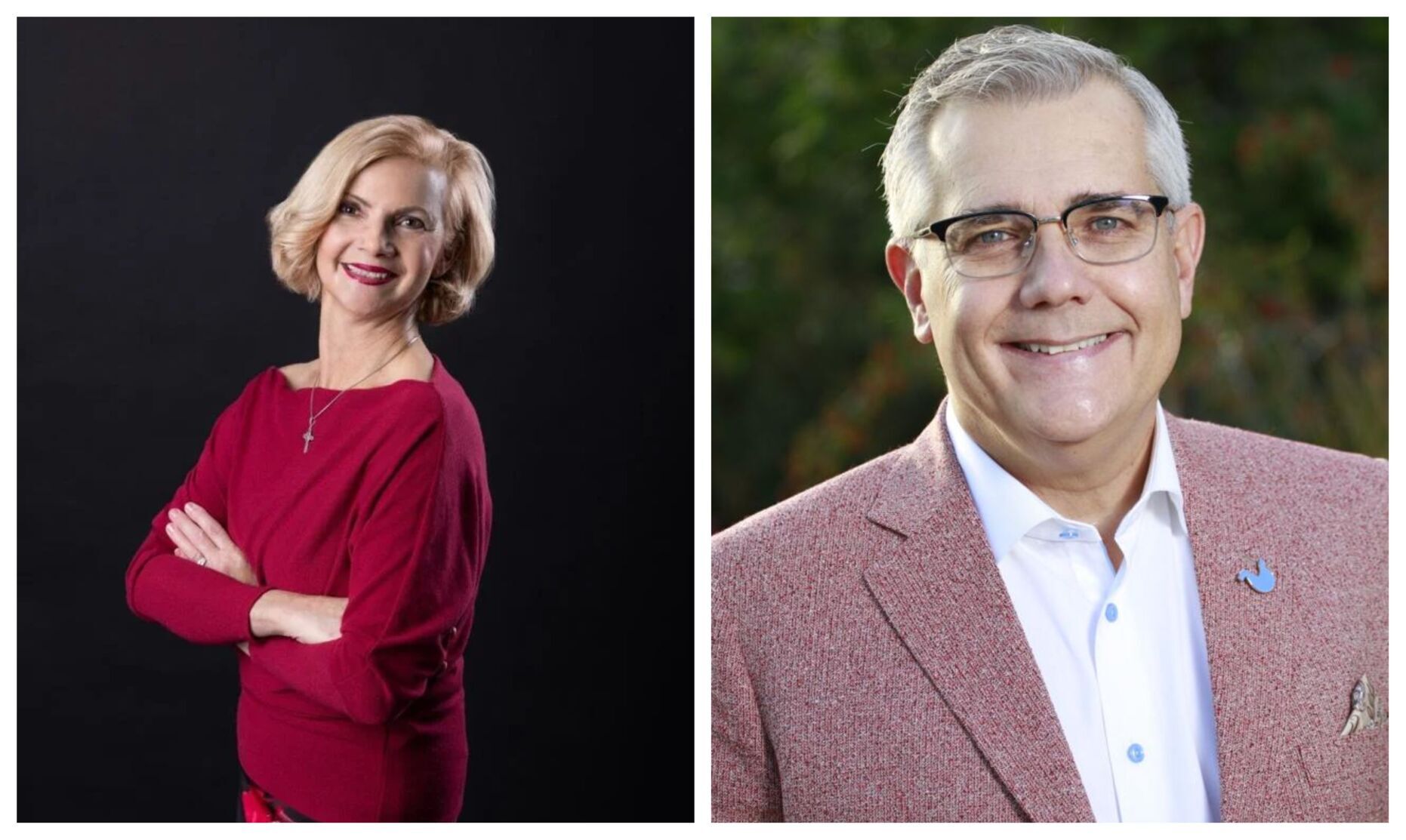
With Aurora’s November election rapidly approaching, city residents will have several big decisions to make in choosing the next city leaders.
Voters will choose between several candidates for mayor, at-large councilmembers and councilmembers for districts (called “wards”) IV, V and VI.
Two candidates, Francoise Bergan and Brian Matise, are running for one Ward VI council seat, currently held by Francoise Bergan.
Election Day is Nov. 7 and candidates elected to office in 2023 will serve four-year terms ending in 2027. Their terms will begin at the commencement of the first regular council meeting in December following the election.
The Denver Gazette asked all of the candidates a series of questions about how they would approach their roles. Responses from the two Ward VI candidates are as follows.
What makes you qualified for the role you’re running for and why should people vote for you?

Francoise Bergan: I have a proven record of advocacy for Ward VI, as well as a list of accomplishments over my prior two terms. I have built relationships with city management, staff, legislators, and constituents to help me navigate the workings of city government. Having served on most of the city’s policy committees, I’ve amassed a wealth of institutional knowledge to better serve the community, local organizations, and businesses.

Brian Matise: I have broad professional experience as a physicist, public high school science teacher, and attorney. Resident of Aurora for over 20 years and Ward VI for 18 years. Served on Tollgate Crossing Metro District Board since 2006 during which time my ideas turned a debt-ridden district unable to pay its bills into a financially secure district, while cutting taxes and eliminating fees. I proposed and implemented license plate readers and security patrols to reduce crime. Served on Aurora Citizens Budget Committee 2018-2021. I understand neighborhood issues, budgeting, and have demonstrated success developing and implementing effective new ideas.
What are the top three challenges Aurora is facing today and how would you address them?
Bergan: Addressing crime and keeping our communities safe is a priority and a challenge. I will continue to advocate for stronger penalties for criminals, while supporting our law enforcement with proper training, competitive pay and benefits and strong leadership. Secondly, housing affordability is a complex issue. Understanding the costs of housing – labor, materials, land, and regulations – can guide our policy decisions. Ensuring a wide variety of housing products, including condominiums, that meet consumer demand will increase needed inventory. Thirdly, development of additional water storage, reuse technology and conservation will help sustain our future needs.
Matise: Public safety – we are short 100 police officers and need to improve both police responsiveness to crime and public relations with police. My approach is a “force multiplier” using technology similar to Tollgate Crossing license plate readers and neighborhood support (more PAR officers, working with neighborhood leaders and security services).
Poor planning and development – Aurora continues to approve unaffordable, unsustainable single-family developments and luxury apartments instead of transit-oriented development.
Protecting our environment – Aurora needs to protect its reservoirs by enforcing the 1-mile setback for oil drilling and working with the county to adopt a comparable setback.
What is your stance on Aurora’s approach to homelessness and how would you address it?
Bergan: The causes of homelessness are complex. We must address substance abuse and mental illness as one of the primary causes. The counties are the health and human service agencies and should be the lead in addressing homelessness. More regional resources need to be invested in detox facilities and walk-in centers, as well as long-term treatment. Aurora gives funding to various organizations for services such as shelter, food, health resources and more, while working together with other agencies.
Matise: Much of our approach is not working, as we see encampments merely being swept across the city limits only to be swept back a few days later. Shelters for domestic violence victims are full leaving victims no choice but to remain unhoused. A few ideas have some success, such as offering temporary or transitional pallet shelters in cooperation with Restoration Christian Ministries. Although there are many causes of homelessness including mental health, addiction, joblessness, and domestic violence, services are more effectively delivered if the person is housed. Houston’s model is worth following, with a 90% success rate at affordable cost.
As an elected official, what would you role be in bolstering public safety efforts in Aurora?
Bergan: Investing in proper equipment, technology and facilities is vital to ensuring the right conditions for our first responders. I will continue to support our efforts in recruiting and retaining police officers, firefighters and 911 dispatchers. I believe in working with our local community colleges, as well as K-12 schools, to encourage good relations and provide a path to careers in public safety.
Matise: I would promote a neighborhood-based public safety approach that promotes crime prevention and deterrence. We have seen that mandatory sentences do not work: Criminals don’t believe they will be caught, crimes are not solved, and defendants are released before trial. I would fully staff our neighborhood PAR officer program, work with neighborhood associations and metro districts to install license plate readers and security patrols, and improve police cooperation with neighborhood leaders to instill confidence in the police. Finally, we need to eliminate the root causes of crime through youth and family support programs.
What is your stance on the Strong Mayor proposal?
Bergan: I prefer the current “City Manager-Council” form of government, where the council and mayor are the policymakers, and the city manager is a professional appointed by council to carry out the day-to-day administrative operations. City managers belong to professional organizations that offer training and resources. Proponents of a strong mayor cite a more direct accountability to the people. However, since the council appoints the city manager in Aurora, the council is accountable to those who elected their representatives. A strong mayor form can invite cronyism and corruption.
Matise: I am opposed to it because it goes too far and would politicize certain city functions such as police and fire department hiring and firing that are best left to a professional manager. It would also be too difficult for City Council to override a mayoral veto. However, I believe we should empower our mayor to be more than a ceremonial leader and tie-breaker on city council votes. I would provide the mayor with three cabinet-level appointments who, along with the mayor, would lead policy committees and act as liaison between the mayor and city staff.
What is one thing you would do differently than the person who currently has the role you’re running for?
Bergan: As the incumbent, I have worked hard to engage constituents in attending my Town Halls. In my effort for continuous improvement, I strive to increase my outreach so more residents can have input in our local government. I often challenge the status quo and try to think outside the box and will continue to look for ways to improve the services we provide to our community. Improving our road infrastructure continues to be a priority, while identifying funding sources. (Editor’s note: As the incumbent, Bergan was asked, “What is the one thing you would change or improve about how you approach your role?”)
Matise: I would scrutinize new development and financing instead of “rubber stamping” whatever is proposed. City council has routinely approved over $100 BILLION of debt on metro district taxpayers – far in excess of the improvement cost. SARIA imposes taxes on certain neighborhood taxpayers for up to 50 years to benefit NEW developments outside their neighborhoods. That is unfair. The City has borrowed over $263 million without voter approval through “certificate of participation” sale/leaseback schemes – with our City Hall, Tallyn’s Reach public safety center, etc. as collateral. This costs taxpayers $25 million/year that must be repaid 20+ years in the future.
What’s the best thing about living in Aurora?
Bergan: The best thing about living in the city of Aurora is the quality of life. We enjoy parks, open space, and hundreds of miles of trails, as well as recreation centers and a sports park for healthy lifestyles. Additionally, the diversity of Aurora has provided us with great ethnic restaurants and small businesses. We have the world-renowned Anschutz medical campus, a thriving bioscience campus, business growth and a bright future.
Matise: Our neighborhoods. We look out for each other and are always willing to help a neighbor in need. We come together in times of crisis. We may differ in our views, and we may be of different cultures, but we all want what is best for our families, our neighbors, and the next generation. We support our local businesses, who are also there for us and children’s school fundraising efforts. While it seems as if the media frequently tries to “sensationalize” our problems, Aurora neighbors are always willing to help out.



